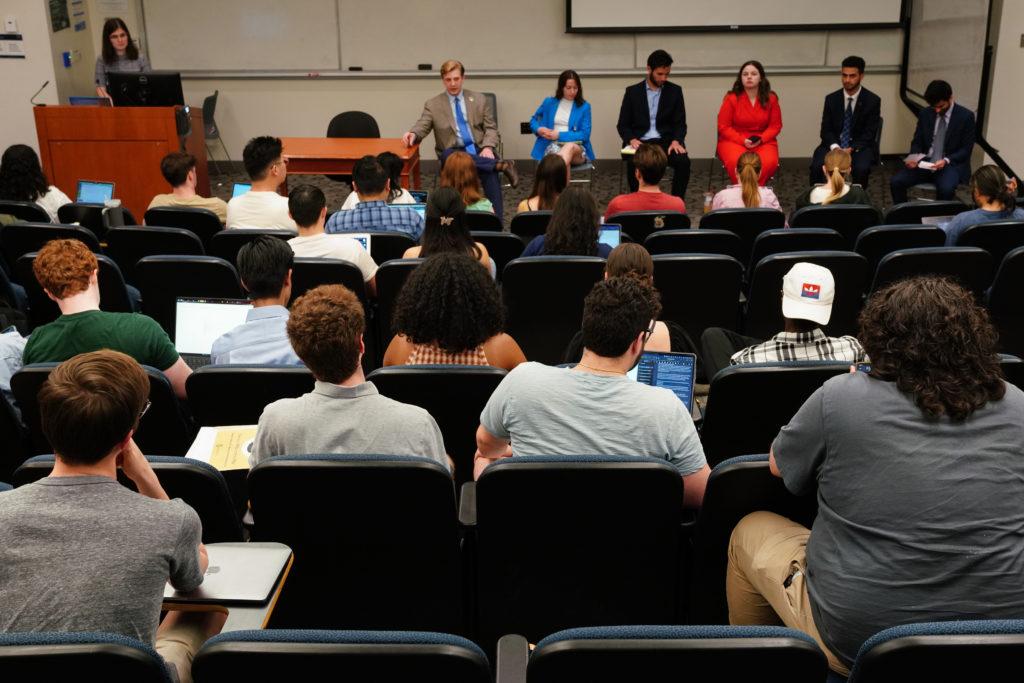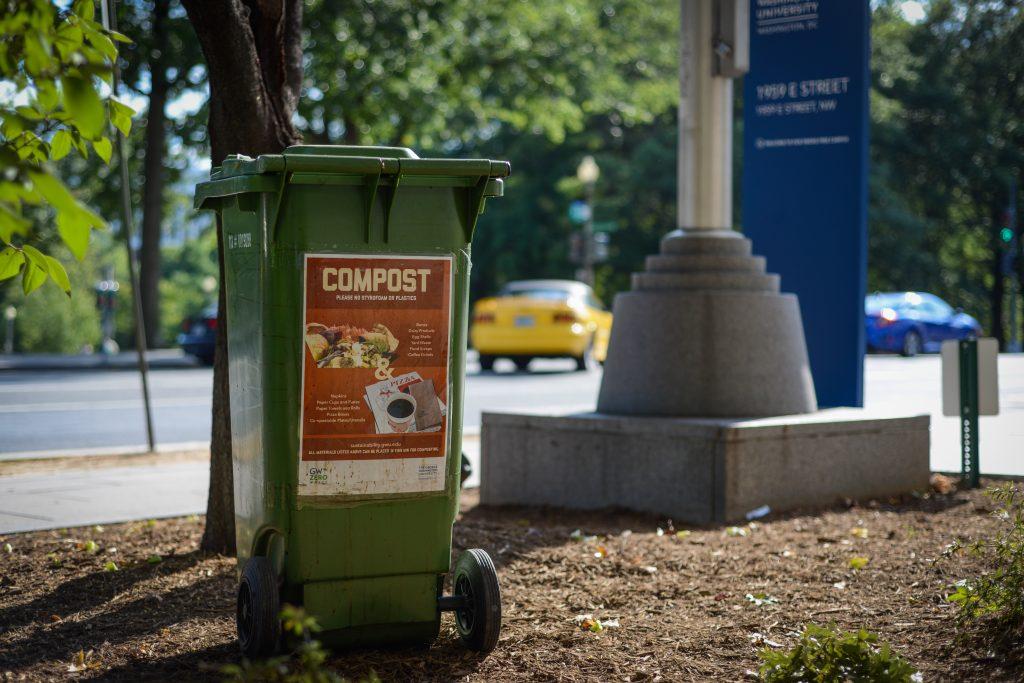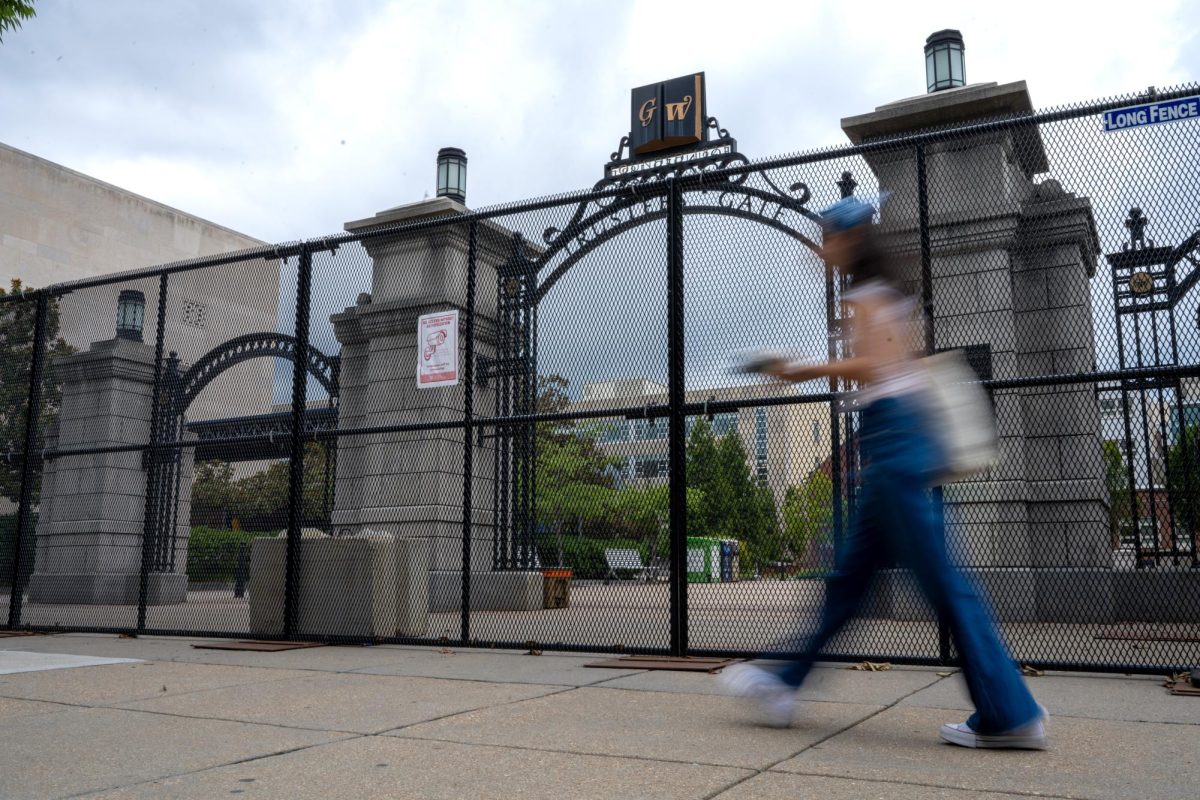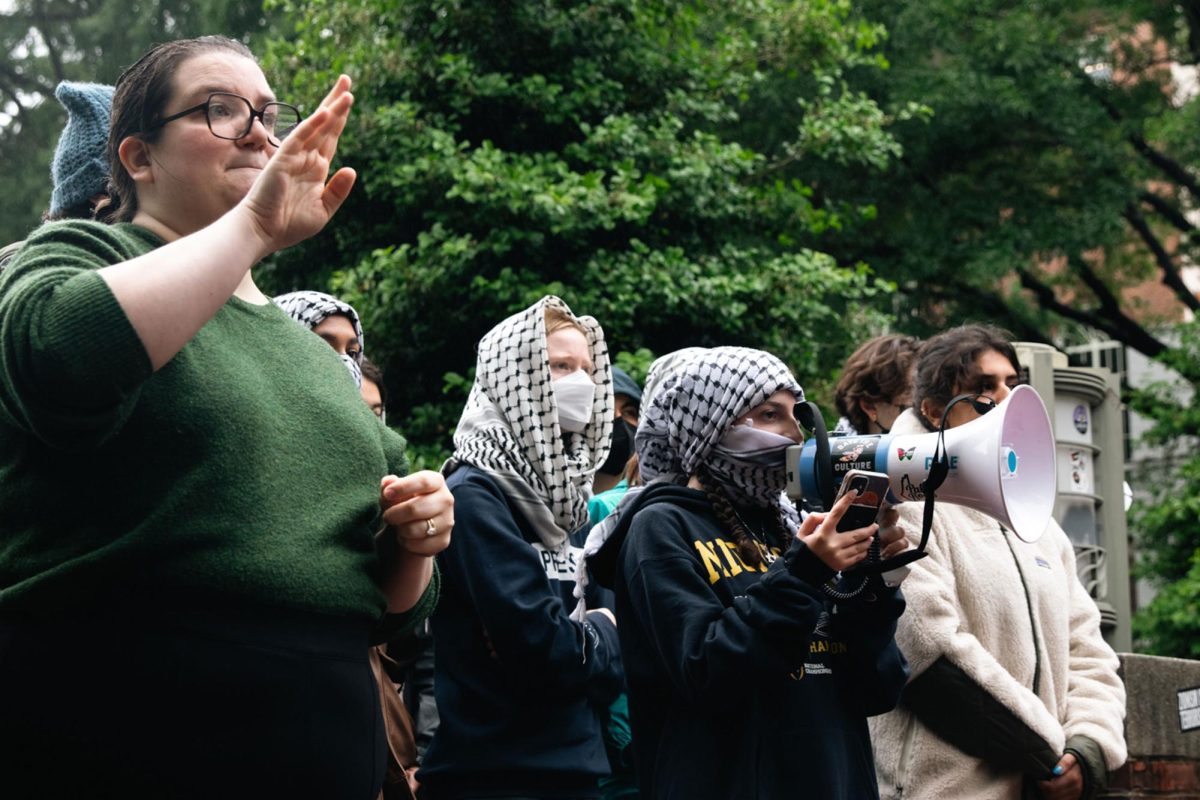When students were faced with an opportunity last year to reform the Joint Elections Commission, they voted to terminate the body as it was known for more than 30 years.
The referendum, approved by 59 percent of voters in April 2023, aimed to expand the JEC’s independence from the Student Government Association by requesting the SGA pen a bill revising the body’s bylaws. But what the SGA seemingly didn’t realize is that the referendum completely eliminated the commission from GW’s student government.
On Feb. 5, the SGA passed a revision to reimplement the JEC and split the reformed body — a group of eight students who administer the SGA elections — into three governing branches: one to oversee the entirety of the JEC, one to implement rules and regulations and one to adjudicate disputes. The new structure will work to expand due process for candidates because, in previous years, the JEC was tasked with both passing rules about the election and enforcing them, which allegedly violated candidates’ rights to be protected from government interference.
But delays to reorganizing the commission will push the scheduling of the upcoming SGA elections into April for the second year in a row, JEC members suspect. At least five people involved in the creation of the JEC’s new bylaws said the SGA’s Office of Senate Legal Counsel was unaware of the need to reform the bylaws until former JEC Counsel Adam Galland brought it to the office’s attention in December, months after the referendum’s passing.
Michael Ubis, who was confirmed in July as the JEC’s vice commissioner, said the constitutional amendment on the referendum last year moved the JEC from being a “fourth branch of government” to an independent regulatory agency under the executive branch.
“Because it removed the JEC section part of the Constitution, the JEC was abolished and had to be reestablished,” Ubis said. “That’s what this whole bill was doing, was reestablishing the JEC because it didn’t exist anymore.”
Ubis said the restructuring halted regular operations of the JEC, leading to delays in scheduling the SGA election, which is supposed to be held at the end of March per JEC bylaws but will now be held in April.
Ubis said these delays present repercussions for the JEC’s ability to function during election season because the body “probably” would have set election dates had the JEC continued this year under past bylaws. He said he is “90 percent”’ certain the JEC would have also had its first public meeting, where the commission would finalize plans for the election calendar and hold its first information session.
Last year, the JEC asked the senate to extend the March election deadline to new dates of April 5 and April 6 due to delays in appointing JEC commissioners. After barring three candidates from the ballot because of issues verifying candidates’ signatures about a month later, the JEC pushed back the election again to the next week of April 13 and April 14.
SGA elections must be held in the month of March, with the publicity period beginning in February, but the senate can vote to push the election into April if the JEC requests it, according to the JEC’s new and old bylaws.
The SGA is set to reconfirm Ubis and JEC Commissioner Fatima Konte, who both served on the JEC last year, at a Monday senate meeting.
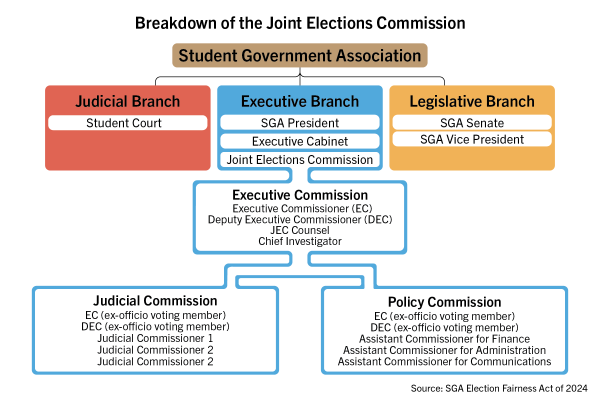
Former Chief Counselor to the SGA Senate Henry Mills, who helped write the legislation, said the new JEC is organized into three branches, including the executive commission, which is designed to oversee the JEC. He said the executive commission will supervise and support the work of the policy branch, which will implement rules for election governance as stated in the bylaws, whereas the judicial branch will adjudicate disputes.
“Importantly, the judicial commission only hears cases as trials of fact, and can only adjudicate sentences within the scope afforded to them by the governing documents,” Mills said.
The JEC can begin its community contact publicity period at least two weeks before the commencement of the candidate registration period, per the new bylaws. During the community contact period, the JEC reaches out to all undergraduate and graduate schools and student organizations registered with the Office of Student Life to publicize the elections.
After the two-week period ends, the JEC will establish a registration period of four to seven days during which candidates register for elections, according to the bylaws. From there, the campaign period — which lasts 10 class days and ends with the elections on the ninth and 10th day — must begin on the day following the secondary candidates meeting.
SGA Vice President Demetrius Apostolis, who last year chaired the Governing Documents Review Committee that proposed the amendment, said the new bylaws will push the election toward the beginning of April.
“This will be the new normal,” Apostolis said.
Apostolis said for future elections, he recommends the senate amend the bylaws to remove the clause that states elections must be held in March to ensure no two bylaws conflict with each other and to save the JEC the hassle of requesting an election date in April. He said pushing the elections into the first weeks of April will lessen the stress on the candidate and JEC because they won’t be campaigning during midterm season and spring break.
“That normally is the perfect time before finals, but after midterms, and so we were really keeping the candidate in mind,” Apostolis said.
SGA Sen. Amy Cowley (ESIA-G) sponsored the bill that reformed the elections and said last year’s election was “really hard,” adding that she “applauds” the JEC for the work they did to organize the election. She said the restructuring aims to increase transparency over candidate disqualifications and hopes the changes will make it easier for everyone participating in the elections.
She said the new bill will define the policy and judicial sides of the JEC and hopefully create easier communication channels with candidates and the commission.
“The intention is definitely to try and alleviate as much of those problems as we can in the future, especially with student elections getting from my read somewhat more intense than they have in the past,” Cowley said.


